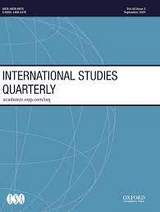
Identifying pathways to peace: how international support can help prevent conflict recurrence
Mross, Karina / Charlotte Fiedler / Jörn GrävingholtExterne Publikationen (2022)
in: International Studies Quarterly, 66 (1)
DOI: https://doi.org/10.1093/isq/sqab091
Open access
This article provides new evidence on how the international community can effectively foster peace after civil war. It expands the current literature's narrow focus on either peacekeeping or aggregated aid flows, adopting a comprehensive, yet disaggregated, view on international peacebuilding efforts. We distinguish five areas of peacebuilding support (peacekeeping, nonmilitary security support, support for politics and governance, for socioeconomic development, and for societal conflict transformation) and analyze which types or combinations are particularly effective and in which context. Applying configurational analysis (qualitative comparative analysis) to all thirty-six post-civil war peace episodes between 1990 and 2014, we find that (1) peacekeeping is only one important component of effective post-conflict support, (2) the largest share of peaceful cases can be explained by support for politics and governance, (3) only combined international efforts across all types of support can address difficult contexts, and (4) countries neglected by the international community are highly prone to experiencing conflict recurrence. Three case studies shed light on underlying causal mechanisms.



